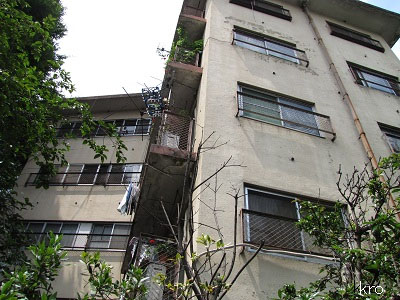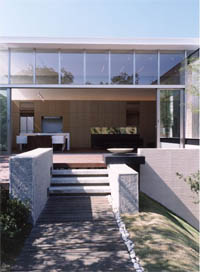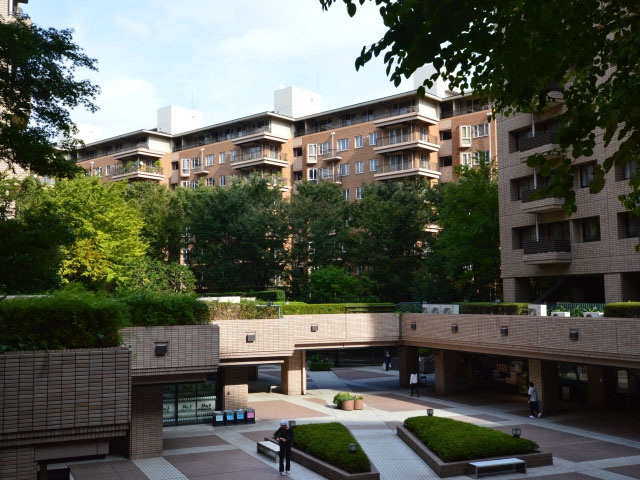Will 2014 be a seller's market for Tokyo real estate?
The Tokyo apartment market is showing all the signs of shifting towards a seller’s market in 2014.
What defines a seller’s market will vary depending on who you talk to, but many suggest it is when there is 3 ~ 9 months of inventory remaining on the market. Other conditions include:
- More buyers than properties for sale? Yes
- Prices are rising? Yes
- Inventory is falling? Yes
- Discounts are shrinking? YesRead more
Cabinet decision to reduce voting ratio to sell apartment building & land
The Cabinet has approved a reform to the apartment redevelopment law which will lower the voting ratio required before an apartment building and land can be sold. Previously, 100% of apartment owners had to be in agreement before the building and land could be sold, but the revision will reduce this ratio to 80%.
It is hoped that the loosening of the regulations will encourage the demolition and redevelopment of ageing buildings and reduce the number of buildings at risk of collapse in an earthquake. It could also open up opportunities for developers to re-purpose the use of the land from residential to commercial.
The decision will be submitted to the ordinary session of the Diet in mid-March and could be enacted within 6 months.Read more
Redevelopment not an option for many apartment buildings
 Buying an apartment in an older building may be appealing because you can get more space for your money, but what will happen down the track when the building has reached a point where it needs rebuilding?
Buying an apartment in an older building may be appealing because you can get more space for your money, but what will happen down the track when the building has reached a point where it needs rebuilding?
According to the Ministry of Land, Infrastructure, Transport and Tourism, only 218 apartment buildings nationwide have either been redeveloped or are in the process of doing so. This represents just 0.5% of the 38,000 buildings built before 1981 - the year when the major change to earthquake-resistant building codes was introduced.
So why are there so few examples? Read more
Understanding the lifespan of a Japanese home or apartment
 Are second-hand homes really that bad?
Are second-hand homes really that bad?
There is a common opinion in Japan that brand new homes are a safer and less risky purchase than pre-owned ones. But, all old homes were new at one stage. Whether they are new or old, all buildings will deteriorate over the years in some form or another.
The second-hand housing market can be referred to as a 'lemon market'. As described by economic George Akerlof in his 1970 paper 'The Market for Lemons: Quality Uncertainty and the Market Mechanism', there can be good used cars and bad used cars. Similarly, the second-hand housing market may contain well-maintained and cared for homes, but can also contain just as many neglected and defective homes. On the outside, they may all appear the same, but the 'rotten' homes out there destroy buyers' faith in the market and drag prices down.
What can cause an apartment's value to fall after purchase?
The following is a list of some negative factors that can cause an apartment's value to fall over time. Some of these points may impact resale value more than others.
The negatives:
- Proximity to unpleasant facilities. Eg. a cemetery, crematorium, place of adult entertainment, garbage incineration plant, gas tank, factory dealing with hazardous materials, sewage treatment plant, gas or petrol station, or a warehouse with large vehicles coming and going. Properties near something undesirable may be relatively cheap to begin with, and a buyer might think they can put up with the surroundings if it means they can get a good bargain. But what happens when they want to sell the apartment down the track? Are future buyers going to want to put up with the same thing, or will they also be expecting a bargain price? Read more
Buying with resale value in mind
There are a lot of factors that can help determine the future resale value of an apartment. Two apartments bought at the same time 10 years ago can have very different resale values today.
For example, one apartment was purchased for 50 million Yen and now has a resale value of 51.5 million Yen (3% gain). The 70 sqm 3-bedroom apartment is a 3 minute walk from a station on the Yamanote Loop Line and was purchased from the developer. It is a south-west corner unit on the 10th floor with good light.
The second apartment was purchased at the same time for 45 million Yen and now has a resale value of 35 million Yen (22% loss). It is a 79 sqm 3-bedroom apartment and is 12 minutes from the same station as the apartment above. It is on the 3rd floor but faces east so it loses the natural light in the afternoon. It was also purchased new from the developer.Read more
4-point checklist when buying an older apartment
 If you are thinking of buying an older, secondhand apartment in Japan, these are some of the important factors that you need to consider:
If you are thinking of buying an older, secondhand apartment in Japan, these are some of the important factors that you need to consider:
[1] What are the building's common areas like?
When inspecting an apartment, it is important that you thoroughly check the building's common areas including the entrance, bicycle and car parking, hallways, garbage disposal room and rooftop (if possible). If a building is well managed and maintained, it will be evident in the common areas. If, however, it is unclean or looking run down, it could be a sign that the building is not being property cared for. Read more
